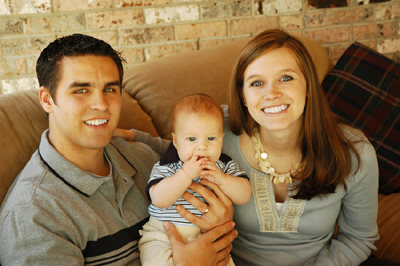Georgia Adoption Attorneys
Why Choose Us?
We have 100+ total years of experience in adoption matters to serve our clients.
We specialize in all types of adoptions: private adoptions, interstate adoptions, Georgia adoptions, agency adoptions, step-parent adoptions, International adoptions, DFACS adoptions, Relative adoptions, Grandparent adoptions, Special Needs adoptions, Adult adoptions and Re-adoptions, termination of parental rights of the birth mother and/or birth father, and Indian Child Welfare Act (ICWA) adoptions.
 Adoption is the creation by law of the relationship of parent and child between two individuals. Adoption terminates the relationship and all rights and responsibilities previously existing between the child and it’s natural parents. The adoption process is closely regulated by the state.
Adoption is the creation by law of the relationship of parent and child between two individuals. Adoption terminates the relationship and all rights and responsibilities previously existing between the child and it’s natural parents. The adoption process is closely regulated by the state.
The primary purpose of these regulations is to advance the welfare of minors by; (i) protecting minors from unnecessary separation from their original parents, (ii) facilitating the adoption of minors in need of adoptive placement by persons who can give them love, care, security, and support, (iii) protecting minors from placement with adoptive parents unfit to have responsibility for their care and rearing, and (iv) assuring the finality of the adoption.
The secondary purposes are; (i) to protect biological parents from ill-advised decisions to relinquish a child or consent to the child’s adoption, (ii) to protect adoptive parents from assuming responsibility for a child about whose heredity or mental or physical condition they know nothing, (iii) to protect the privacy of the parties to the adoption, and (iv) to discourage unlawful trafficking in minors and other unlawful placement activities.
As your Georgia adoption lawyer, it is my responsibility to see that the statutory requirements for adoptive placements are strictly complied with. Being sure that my clients are fully informed about and understand the adoption process is an essential part of this process.
Frequently Asked Adoption Questions
- private adoption is when an adoptive couple (parent) is working directly with a birth mother and no agency is involved in their home state;
- agency adoption is when an adoptive couple (parent) is working with an in-state (or an out-of-state) adoption agency to locate a baby to adopt;
- interstate private adoption is when an adoptive couple (parent) is working directly with a birth mother in another state through an Attorney in that State and there are specific requirements for this interstate adoption;
- interstate agency adoption is when an adoptive couple (parent) is working directly with an agency and the birth mother in another state and there are specific requirements for this interstate adoption;
- relative/Grandparent adoption is when a Sister, Brother, Aunt and/or Uncle and/or Grandparents are planning on adopting their infant relative;
- step-parent adoption is when a Husband or Wife wishes to adopt his/her Spouse’s child/children;
- ICWA adoption is when a birth parent is part American Indian.
- DFACS adoption is when an adoptive couple (parent) adopts through the Department of Family and Children Services in their/his/her county and only needs to finalize the adoption.
- Friends and relatives networking
- Private adoption agencies, if you choose to use an agency
- County departments of social services; if you are on their list
An approved Home Study is required in all adoptive placements. It may be prepared by a licensed child placement agency for a fee. The home study should be completed prior to the placement of the child with the couple or as soon as possible once a baby is placed with you by a birthmother. The approved home study will be filed with the Court and reviewed by the Judge. The home study will address some of the following issues in addition to the agency requirements:
- Age and date of birth, nationality, race, or ethnicity, and any religious preference of the prospective parents
- Marital and family status and history, including the presence of any children born to or adopted by the individual and any other children in the household
- Physical and mental health, including any addiction to alcohol or drugs
- Educational and employment history and any special skills
- Property and income, and current financial information provided by the individual
- Reason for wanting to adopt
- Any previous request for an assessment or involvement in an adoptive placement and the outcome of the assessment or placement
- Whether the individual has ever been a respondent in a domestic violence proceeding or a proceeding concerning a minor who was allegedly abused, dependent, neglected, abandoned, or delinquent, and the outcome of the proceeding
- Whether the individual has ever been convicted of a crime other than a minor traffic violation
- Whether the individual has located a parent interested in placing a child with the individual for adoption, and a brief, non-identifying description of the parent and the child
- Any other fact or circumstance that may be relevant to a determination of the individual’s suitability to be an adoptive parent, including the quality of the environment in the home and the functioning of any children in the household
Obtain and file the necessary documents. The first step is to obtain Consents from the biological parents. The mother will complete an Affidavit Regarding the Biological Father indicating the name, last known address and marital status of the parents. A petition will filed by the prospective adoptive parents seeking the court’s approval of the adoptive placement. The consents and affidavit will be filed with the petition. A copy of the background information sheets about the child’s health, social, educational and genetic history provided by the placement agency or parents and a copy of any court order or pleading concerning custody or visitation with the child will also be filed with the petition. Finally, a document will be filed with the petition identifying any individual whose consent may be required, but has not been obtained at the time of filing the petition.Once the petition is filed, notice of the petition will be served on any person whose consent was necessary but had not been obtained. The court may order the preparation and filing of a report by the agency that placed the child or that prepared the pre placement assessment or will appoint an independent adoption authority to do the post placement visit and file a Court Report. The report is to provide information to assist the court in determining whether the adoptive placement is in the best interest of the child and must be completed within 50 days of the receipt of the order. The petitioners must also file an affidavit accounting for any payment made in connection with the adoption.
Medical expenses incident to the birth of the child could be covered by your medical insurance policy. Check your policy for specific provisions and for coverage on the minor child. All medical expense deposits are due two (2) weeks prior to the birthmother’s due date. The medical expenses will be determined once it is known if the birthmother has insurance or is covered by medicaid. Generally, all legal expenses are the responsibility of the adopting parents. Legal expenses are reimbursable up to varying limits under some corporate benefits packages.
Adoption arrangements which include plans for continuing contact between natural and adoptive parents or allow natural parents to have continuing contact with adopted children are called semi-open or open adoptions and must be agreed to by each party. There is now an Agreement that can be entered pursuant to the provisions of O.C.G.A. Section 19-8-27 and can be litigated if it is not upheld. But it should not be a precondition to the adoptive placement. The consent of the biological parents must be unconditional. Such arrangements also will not invalidate an adoptive placement. Generally, the biological parents become legal strangers to the child once the adoption is final. They have no legal right to any further contact. They may be treated just like any other stranger. They are subject to civil and criminal laws which limit unwanted intrusions.


